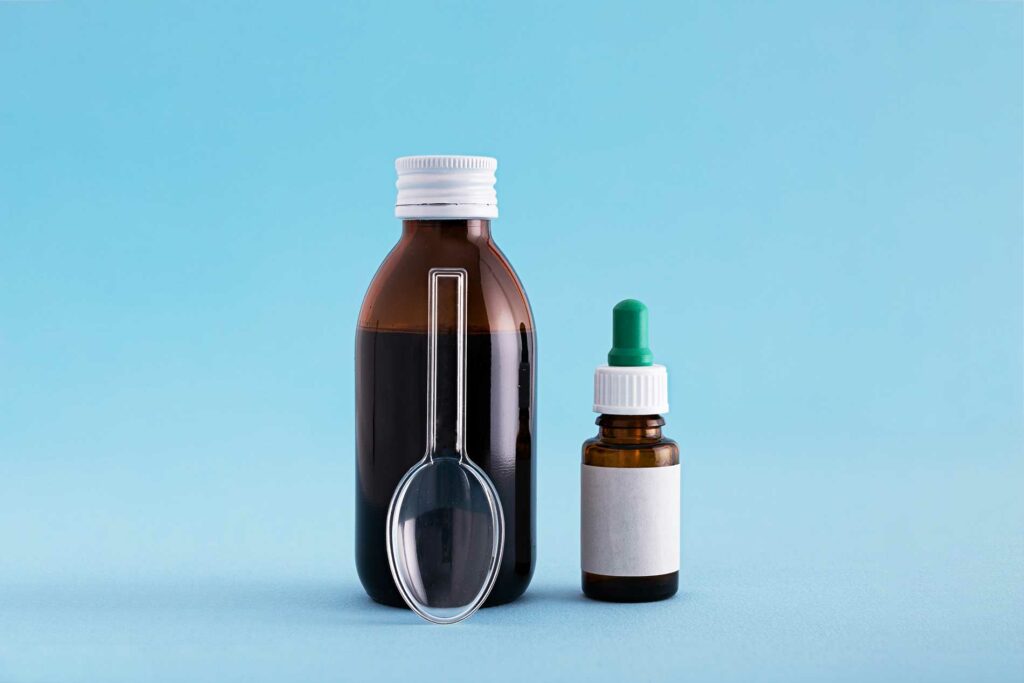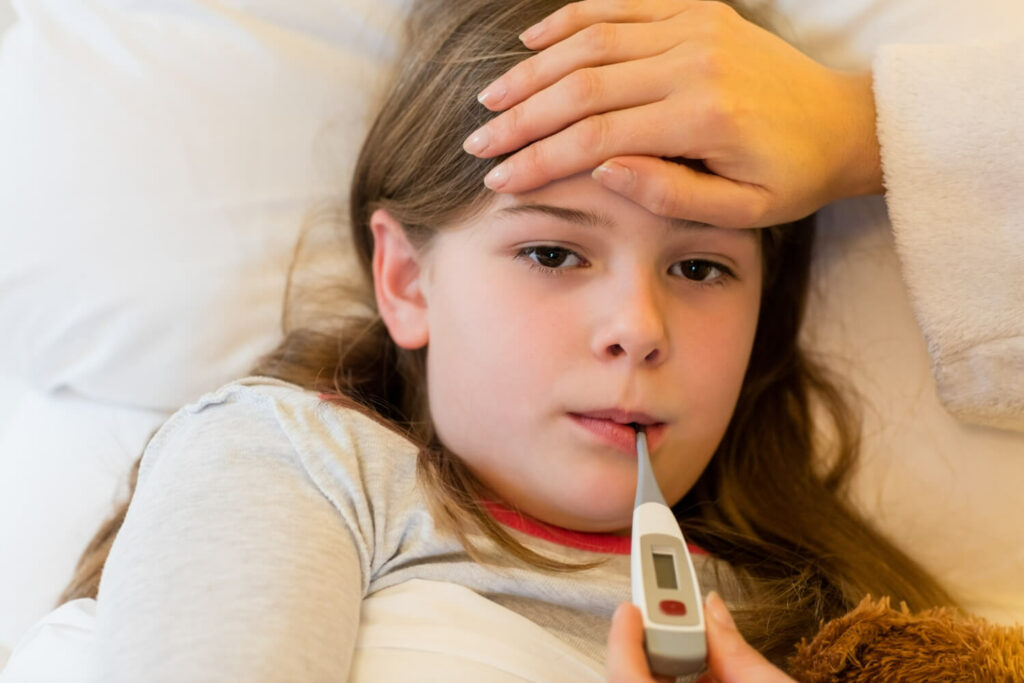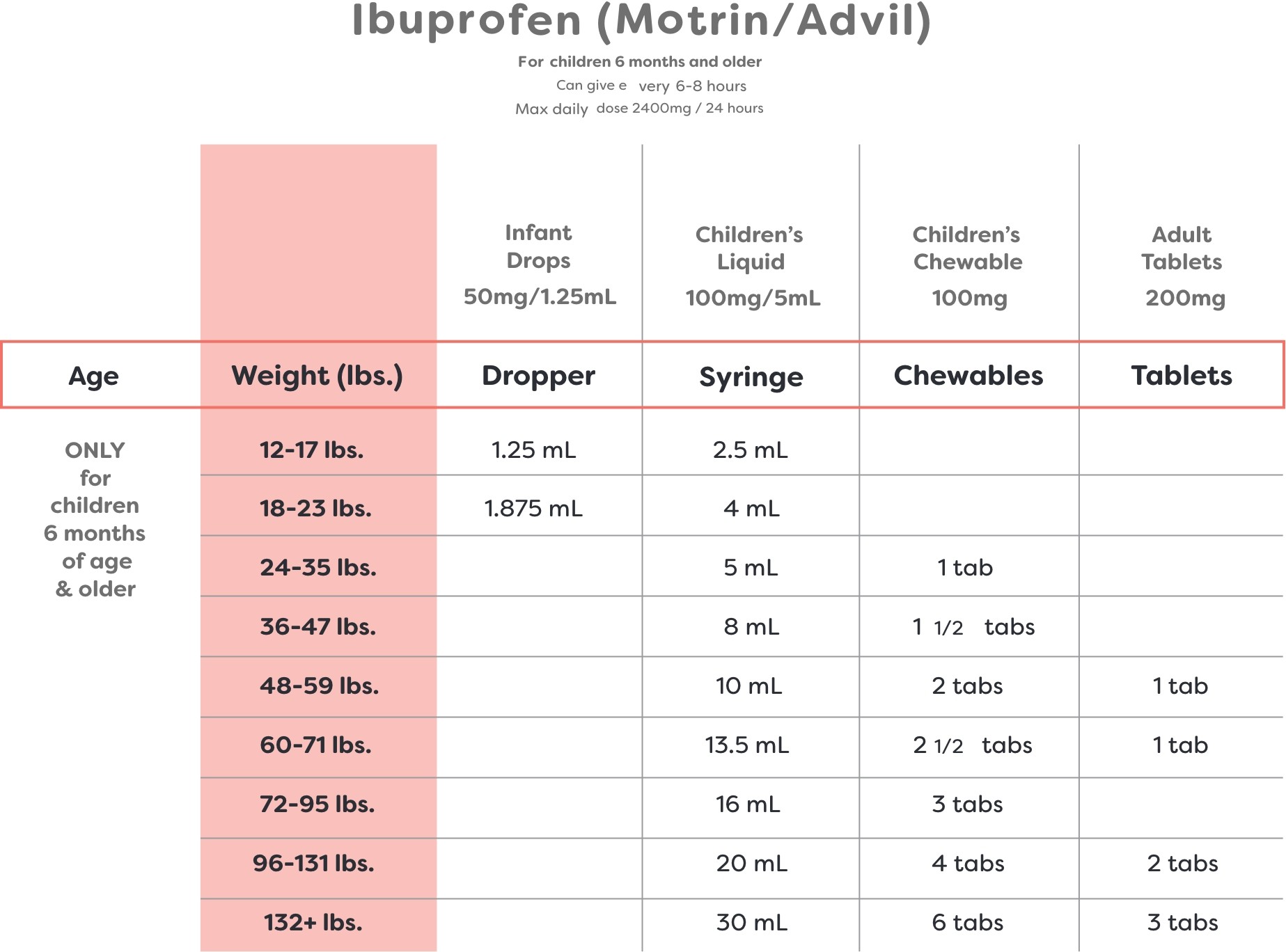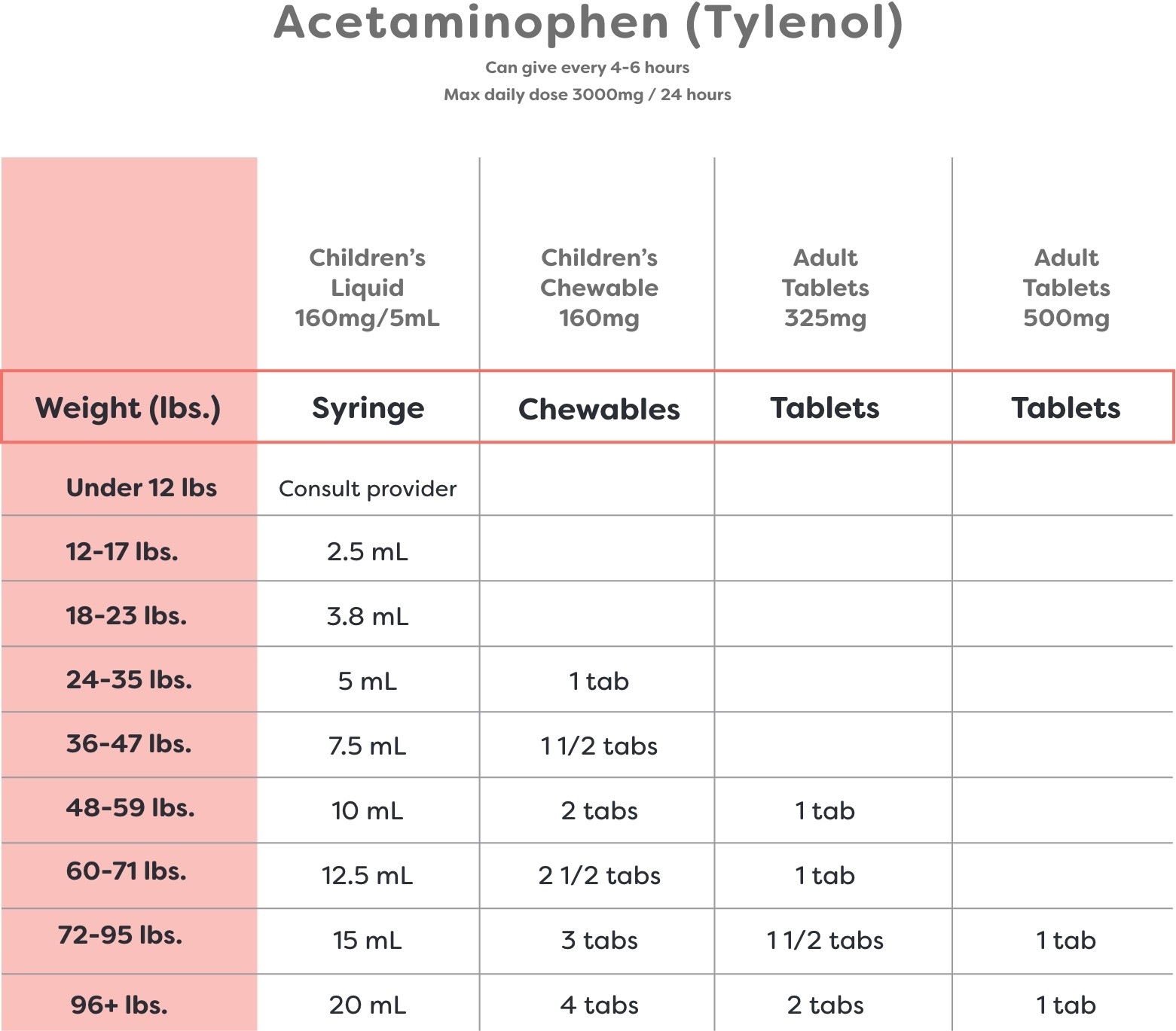Ibuprofen/Tylenol Dosing Chart
Taking away children’s pain is a very natural maternal and paternal instinct. Nebraska Home Pediatrics & Parents wants to ensure that parents understand when they should give their child pain medication, which pain medication to use, and how much pain medication to give their child. Contact us today to book your child an appointment with professional health providers.

Commonly-Used Painkillers for Children
Acetaminophen (Tylenol)
Acetaminophen is among children and adults most commonly-used generic over-the-counter pain medication and can be safely given to children of all ages. It comes in bottles of liquid containing 160mg of acetaminophen in each 5ml, chewable tablets, and capsules to swallow. The amount of acetaminophen you give your child depends on their weight, and is dosed at 10-15mg for each kilogram of body weight.
The Nebraska Home Pediatrics & Parents dosage table has done the weight calculations for you. Tylenol should be given every 4-6 hours as needed for pain relief, with no more than 3000mg in 24 hours. In general, children and adults with liver disease should avoid acetaminophen. Consult your provider if you have questions about whether or not you or your child can safely take acetaminophen.
Ibuprofen (Motrin/Advil)
Ibuprofen is another commonly-used generic over-the-counter pain medication in the class of NSAIDs, which stands for non-steroidal anti-inflammatory drugs. Motrin and Advil are the two most well-known brand names for ibuprofen. IMPORTANT: ibuprofen is safe for children 6 MONTHS AND OLDER.
You can purchase liquid infant ibuprofen with a concentration of 50mg of ibuprofen per 1.25ml or liquid children’s ibuprofen with 100mg of ibuprofen per 5ml. You can also purchase chewable tablets and capsules that you swallow. Ibuprofen medicine is dosed at 5-10mg for each kilogram of body weight.
The Nebraska Home Pediatrics & Parents dosage table has done the weight calculations for you. Ibuprofen should be given every 6-8 hours as needed for pain relief, with no more than 2400mg in 24 hours. Children and adults with kidney disease and/or stomach ulcers should avoid ibuprofen and other NSAIDs. Consult your provider if you have questions about whether or not you or your child can safely take ibuprofen.
Alternating Ibuprofen and Acetaminophen
After your child turns six months, most providers recommend offering ibuprofen first if they need pain relief. Ibuprofen seems to control pain better, and it will typically last longer (6-8 hours) when compared to acetaminophen (4-6 hours). You can alternate ibuprofen and acetaminophen to manage your child’s pain.
For example, you can give ibuprofen now, and if your child has pain three hours later, give acetaminophen. Then, three hours later, if they still have pain, provide the next dose of ibuprofen. You can continue this alternating pain medication administration pattern while your child feels uncomfortable.
Do not give either medication more frequently than recommended, and do not exceed the recommended daily max of each drug.

Generic vs. Brand Name Medications
Regarding over-the-counter pain medications, like acetaminophen and ibuprofen, please remember that the store-brand generic drugs are just as effective as the name brand. Save your money and buy generic!
Medication Safety
The medication safety reminders mentioned below are from: (https://www.healthychildren.org/English/safety-prevention/at-home/medication-safety/Pages/Medication-Safety-Tips.aspx)
- Keep all medicines out of children’s reach.
- Use only the dosing device specific to the product (do not use a household teaspoon).
- Never give adult medicines to children.
- Always follow instructions on the label and consult your medical provider if you have any questions.
- If you suspect your child has taken too much of this or any medicine, call Poison Control at 800-222-1222.

Nebraska Home Pediatrics & Parents Dosage Table
Click HERE to print your ibuprofen and acetaminophen medicine dosage table, or ask the Nebraska Home Pediatrics & Parents team for a laminated copy to keep at home. Book an appointment today to get quality health care for your kids.

